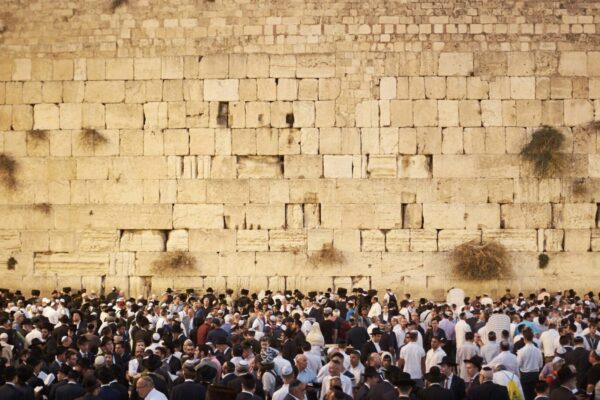Are we doing enough for Gaza?
Are we doing enough for Gaza?
The ongoing extremity in Gaza has become one of the most burning philanthropic issues of our time, raising profound questions about justice, morality, and faith within the Muslim community. The term” genocide” is frequently batted in the environment of the suffering endured by the Palestinian people, who endure loss, relegation, and violence.
For Muslims worldwide, this situation serves as a critical test of faith, compelling them to reflect on their beliefs, values, and liabilities toward their sisters and sisters in humanity.
Islamic Training on Justice
In Islam, justice is consummate. The Quran emphasizes standing up for what’s right, indeed even if it means going against one’s own interests.
Allah (SWT) commands in Surah An-Nisa (4:135): “O you who have believed, be persistently standing establishment in justice, substantiations in justice, indeed if it be against yourselves or parents and cousins.”
This verse underscores Muslims’ obligation to endorse for the tyrannized and uphold justice, anyhow of circumstances.
Solidarity and Compassion
The plight of Gazans resonates with core Islamic values of mercy (rahmah) and community (ummah). The situation challenges the Muslim world to engage in collaborative action.
The Prophet Muhammad (peace be upon him) said:
Allah’s Apostle صلى الله عليه وسلم said, “You see the believers as regards their being merciful among themselves and showing love among themselves and being kind, resembling one body, so that, if any part of the body is not well then the whole body shares the sleeplessness (insomnia) and fever with it.” (Sahih Bukhari 6011)
This hadith emphasizes the interconnectedness of the Muslim community and the moral obligation to support those suffering.
A Call to Action
This test of faith requires Muslims to unite in easing suffering and championing for peace. As the extremity unfolds, the global Muslim community must demonstrate adaptability and commitment to justice, embodying Islamic training promoting quality, respect, and life’s saintship.
The Quran encourages us to respond to oppression with tolerance and perseverance. Allah (SWT) states in Surah Al-Baqarah (2:153): “Indeed, Allah is with the case”
This verse reminds us that tolerance and attachment will eventually lead to relief and justice.
The Muslim World’s Responsibility
As Muslims, we must:
- Stand in solidarity with our Palestinian brothers and sisters.
- Give aid and support to those affected.
- Raise our voices against injustice.
The Quran mentions in Chapter 3, Verse 103:
“And hold firmly to the rope of Allah all together and do not become divided. And remember the favor of Allah upon you – when you were enemies and He brought your hearts together and you became, by His favor, brothers. And you were on the edge of a pit of the Fire, and He saved you from it. Thus does Allah make clear to you His verses that you may be guided.”
The Responsibility of Muslim Rulers in Addressing the Gaza Crisis
Muslim rulers and leaders have a significant responsibility in addressing the Gaza crisis, given their position of influence and authority. Unfortunately, they seem to be silent, acting as if they are blind to the suffering of their people.
Allah (SWT) says in the Quran, “Are the rulers not responsible for the safety and well-being of their subjects?” (Quran 4:58). This verse emphasizes the duty of leaders to ensure the welfare of their communities.
Moreover, Allah (SWT) states, “And whoever saves one life, it is as though he has saved all of humanity” (Quran 5:32). This highlights the immense value of every human life and the moral imperative to protect those in need.
In addition to these verses, the Prophet Muhammad (peace be upon him) emphasized the importance of leadership and responsibility.
He (pbuh) said, “Every one of you is a shepherd, and every one of you is responsible for his flock.” (Sahih Bukhari). This hadith underscores the accountability that leaders have towards their people.
Furthermore, the Quran reminds us of the importance of justice:
“O you who have believed, be persistently standing firm in justice, witnesses in justice, and do not let the hatred of a people prevent you from being just” (Quran 5:8).
This verse calls for fairness and justice, especially in times of conflict.
Muslim rulers must recognize their duty to protect their citizens and advocate for justice, particularly in crises like the one in Gaza. Their voices can bring attention to the plight of the oppressed and rally support for humanitarian efforts. It is essential for them to act decisively and compassionately in the face of such challenges.
In conclusion, the responsibility of Muslim rulers is not just a matter of governance; it is a moral obligation rooted in the teachings of Islam. As they witness the suffering of their people, they must rise to the occasion and fulfill their duties with integrity and compassion.
Let us turn to Allah in prayer:
- Perform Tahajjud prayers, seeking Allah’s guidance and protection
- Make sincere Dua for Gaza
“O Allah, relieve their suffering. O Allah, grant them strength, courage, and adaptability. O Allah, bring justice and peace to Palestine. Ameen”
Conclusion
The Gaza extremity tests the Muslim world’s faith and collaborative responsibility. It’s an occasion for Muslims to reaffirm their commitment to justice and compassion, standing in solidarity with those who suffer.
Islamic principles should guide their conduct, inspiring them to work toward a future where peace and justice prevail for all.





